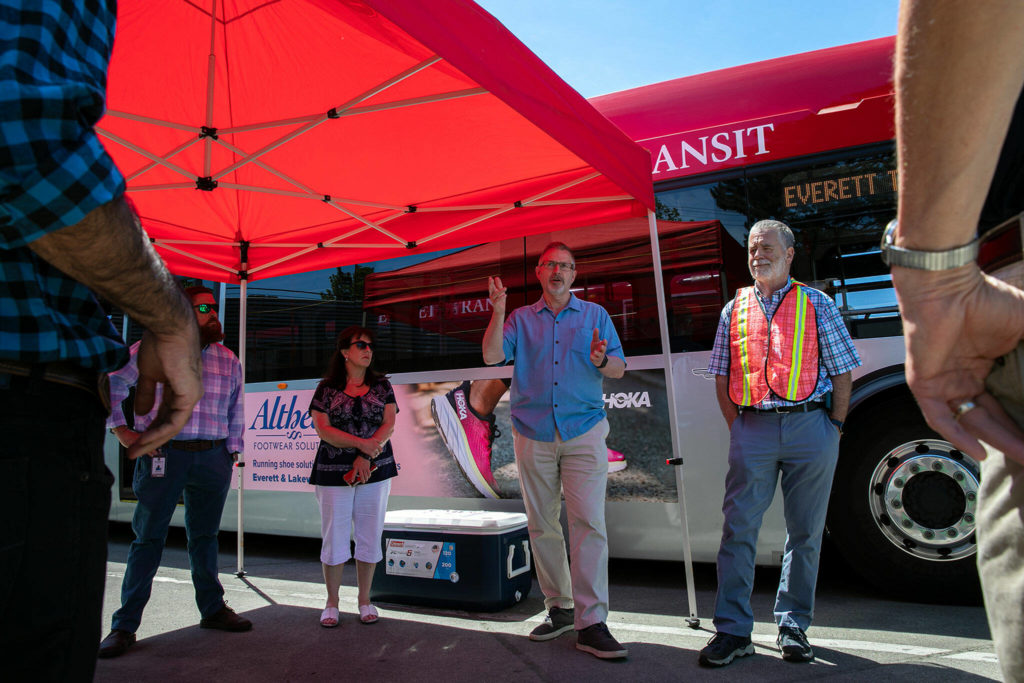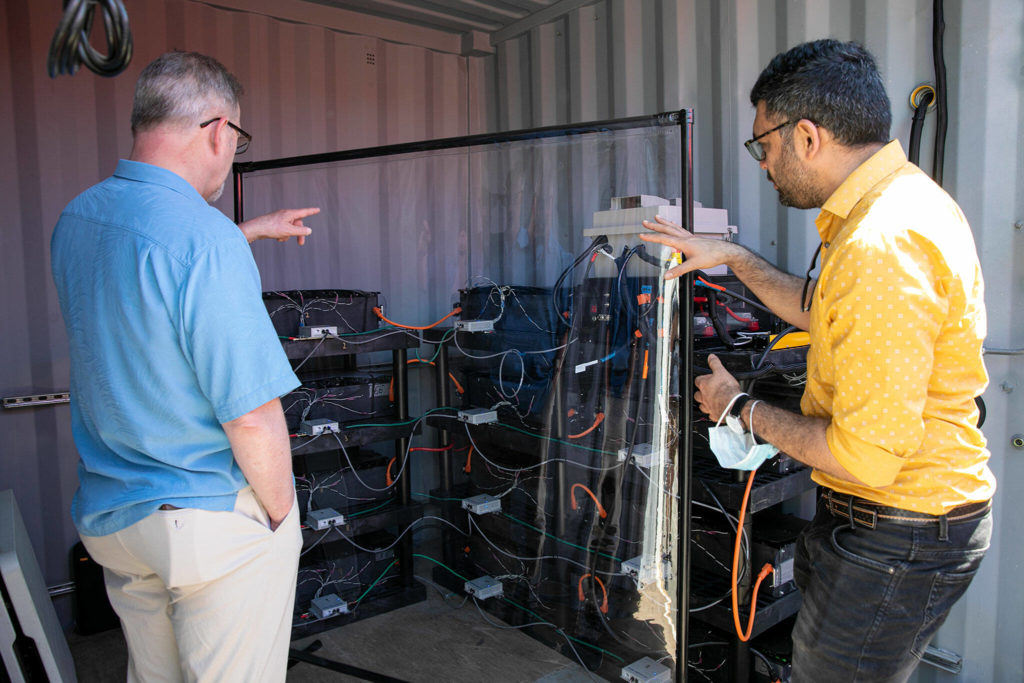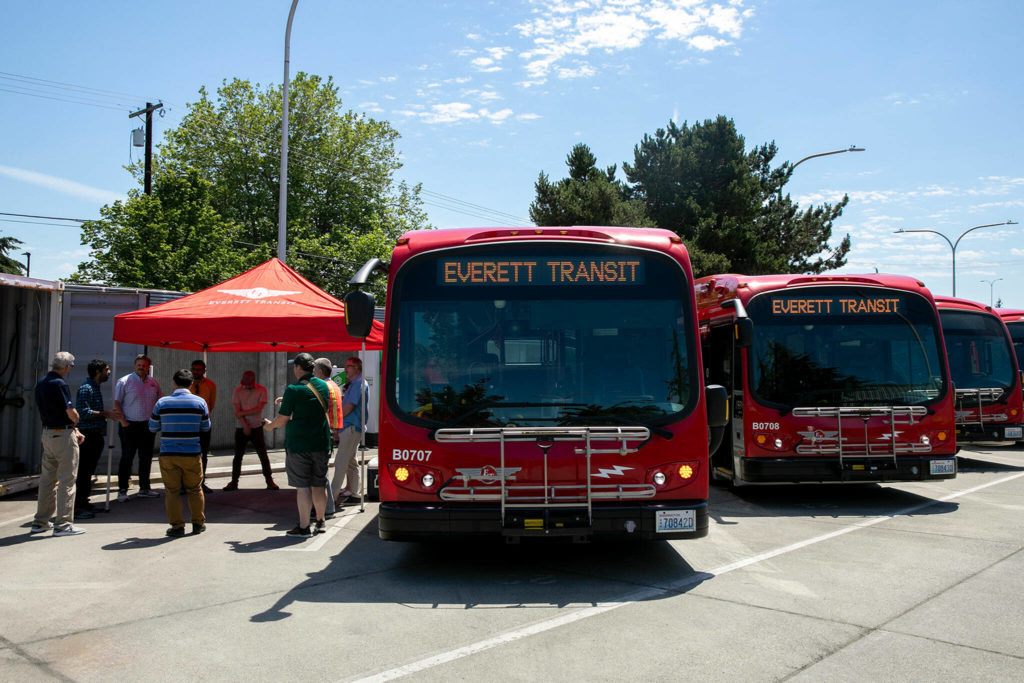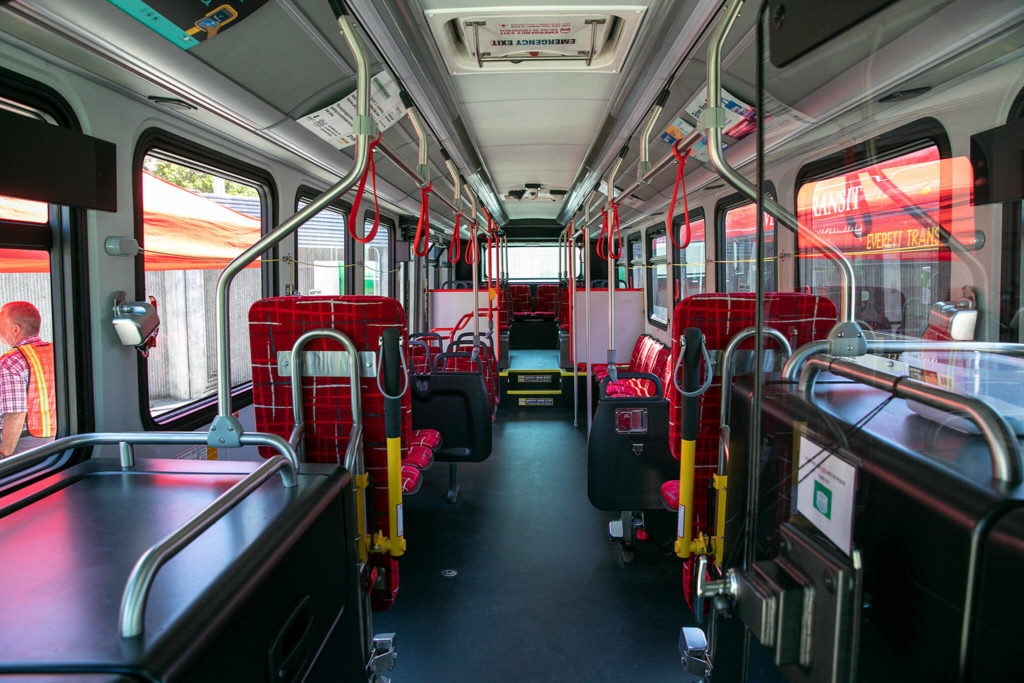Old bus batteries are getting new life as a backup power supply for Everett Transit.
BattGenie, a startup based in Austin, Texas and Seattle that focuses on energy storage and software to manage it, installed the system in January.
Everett’s not paying anything for the unit housed in a small shipping container on a corner of its Cedar Street lot. The tech hub gets to collect data and test its concept on an open-ended timeline.
The system uses old electric bus batteries from King County Metro that don’t have their full charge capacity.
But the batteries still hold energy. Combined with dozens of others, they have enough charge to power 10 homes for one hour, co-founder and CEO Manan Pathak said during a demonstration last week.
Cost efficiency is a key idea BattGenie wants to explore. Its software analyzes rates and will draw power from the Snohomish County PUD grid to charge during off-peak hours.
Generally power demand is highest between 7 a.m. and 10 p.m., according to the U.S. Energy Information Administration. Instead of tasking someone to work overnight to charge the BattGenie supply, software can trigger when it draws power — and how much — so it happens during off-peak hours around midnight.
Then it’s available to flow into the Everett Transit base’s supply and mitigate the amount coming from the general grid.
Everett Transit tries to keep its nine battery electric buses in service during peak-charge hours. But if they’re running out of power, it’s important to plug them in regardless of time.
The city doesn’t have an energy management software system yet, but plans to get one eventually, Everett Transit director Tom Hingson said. So when the buses are plugged in, they’re charging. But something like BattGenie can cut the cost or tell when to juice at full power, similar to how some smartphones will charge slower overnight.
“If we’re charging during the peak time, a portion of our peak-hour charge is coming from the stored energy,” Hingson said.
Snohomish County PUD expects higher peak demand for energy as more cars, bikes, buses, lawnmowers, scooters, tools and trucks go electric, energy management engineer Rob Marks said. PUD leaders want to shift some of the demand load to non-peak times, to avoid buying electricity from other utilities that rely on fossil fuels that contribute to climate change.
Repurposing old batteries can help shift load for now. The small shipping container houses dozens of batteries, but eventually BattGenie’s leaders hope it can scale even larger.
“It’s small and easily maintained,” cofounder and chief operating officer Chintan Pathak said.
Some of BattGenie’s early data seemed promising for prolonging battery life. Bus batteries have about 900 charge cycles. Managed optimally, it can reach 1800 and double the life to 14 years, Chintan Pathak said.
“Your vehicle can drive more miles before a charge,” he said.
The battery system is one item in a growing list of ways Everett Transit is investing in electric buses.
Everett Transit expects to put 10 more electric buses into service next year. All of the new buses can be powered through inductive charging, similar to wireless charging for smartphones.
Inductive charging stations are installed in the road. Buses park over them and charge without needing to plug in. The city plans to put them at College Station, Everett Station and Seaway Transit Center by early next year, if not earlier. Another set, paid for by the Snohomish County PUD’s Department of Commerce grants, are going in at Eclipse Mill Park near the riverside development.
Everett’s fleet of 41 buses are on track to be all battery electric by 2028.
Have a question? Call 425-339-3037 or email streetsmarts@heraldnet.com. Please include your first and last name and city of residence.
Talk to us
> Give us your news tips.
> Send us a letter to the editor.
> More Herald contact information.





























